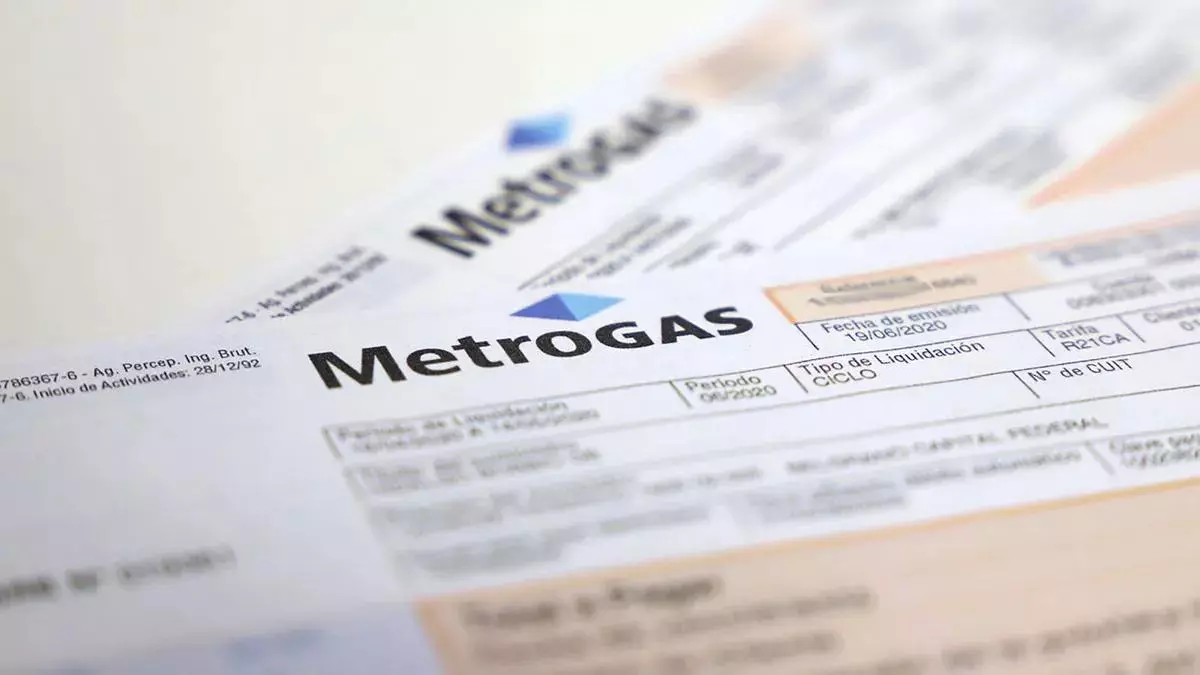
After the increase in the month of April (in the cost of production), the Government made official this Wednesday the new tariff schedule for gas for all distributors in the country that will impact homes, businesses, industries and other non-domestic users on the eve of the winter. In line with the fiscal adjustment requested by the International Monetary Fund (IMF), Milei took another step in removing subsidies, transferring the price to users.
Through resolutions 112 to 123 published in the Official Gazette, the gas regulator, Enargas, published the new tariff tables that govern the entire country, with increases ranging from 150% to more than 460%, confirming the elevation of fixed charges for all income levels over the variable service charge.

How much will the gas bill be?
The impact of the changes on each ticket is different because there are numerous variables at play: three levels of segmentation, eight consumption categories, fixed and variable charges and subsidies for “cold zone” (which is maintained).
However, to have approximations in the AMBA, a high-income Metrogas user with a consumption of up to 500 m3 (R1) per year (which would be for a house or apartment of up to four people that has a heater or hot water tank, kitchen, oven and a stove) you will start paying $7000. An increase of 352%, since in April the same person paid $1,547.
In the case of a high-income residential user with a consumption of between 600 to 800 m3 (R22) per year, they will pay from $4,527 to $25,200, which implies an increase of 456%. This would be for a house or apartment in which four or more people live and have a kitchen with an oven, hot water tank, water heater or boiler and two stoves.
Privatized profits at the expense of working people
In 2023, Metrogas claimed profits of $96,355 million, an increase of 432.2% compared to the previous year without increasing its gas sales, as reported in its annual report to its shareholders. In the public hearing in January of this year, the company had demanded an increase from 438% to 704% for residential users according to the segment they correspond to.

Since Milei took office, gas distribution companies have seen their share prices increase sharply due to promises of dollarization of rates and deregulation of the energy market. Thus, Metrogas saw the value of its shares more than triple, going from $238 per share before the runoff in November 2023, to $906.5 currently.

Adjustment at the request of the IMF
The Government has the objective of lowering energy subsidies by 0.5 percentage points or about 3,000 million dollars, from the equivalent of 1.6% of the Gross Domestic Product (GDP) to 1.1%. Which means 10% of the 5-point mega fiscal adjustment that Luis Caputo and Milei promised to comply with payments to the IMF.
The Ministry of Energy estimated the Basic Energy Basket (CBE), which corresponds to electricity and gas, at $40,000 for a home with “reasonable consumption.” Services that are essential should be guaranteed for everyone, however with the arrival of the cold the government promotes criminal rates on families while the privatized service companies continue to pocket millions.
It is necessary to expropriate and nationalize these privatized companies and put them under the management of their workers and users to provide an economical and efficient service according to our needs and not in favor of their profits. Guaranteeing that their access is an essential right, against the current tariffs that fall more heavily on the popular sectors. And on the path to fighting for a transition of the energy matrix in harmony with the environment.
Source: www.laizquierdadiario.com

